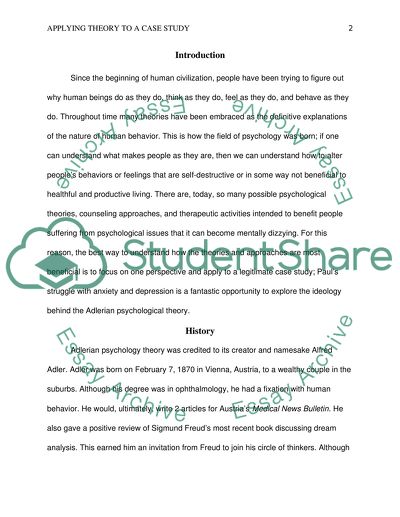Cite this document
(“Applying Theory to a Case Study: Discussing the Case of Paul from a Essay”, n.d.)
Retrieved from https://studentshare.org/psychology/1480212-applying-theory-to-a-case-study
Retrieved from https://studentshare.org/psychology/1480212-applying-theory-to-a-case-study
(Applying Theory to a Case Study: Discussing the Case of Paul from a Essay)
https://studentshare.org/psychology/1480212-applying-theory-to-a-case-study.
https://studentshare.org/psychology/1480212-applying-theory-to-a-case-study.
“Applying Theory to a Case Study: Discussing the Case of Paul from a Essay”, n.d. https://studentshare.org/psychology/1480212-applying-theory-to-a-case-study.


